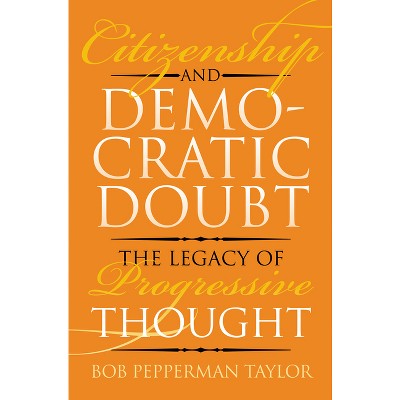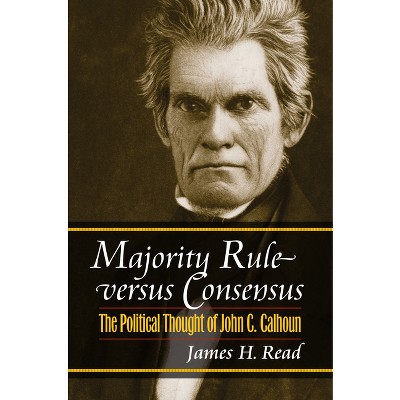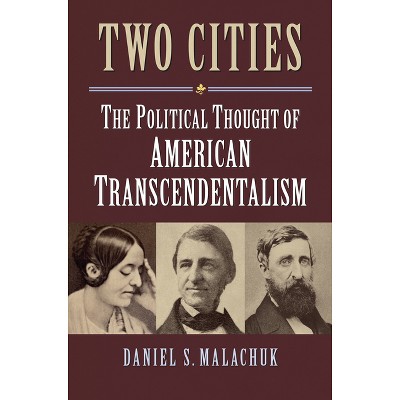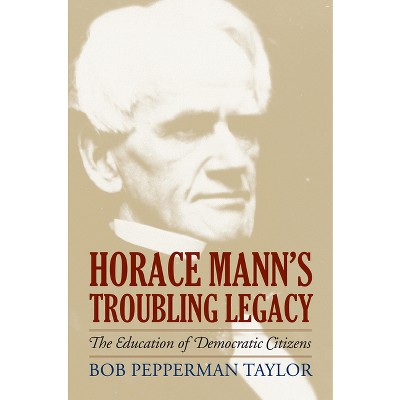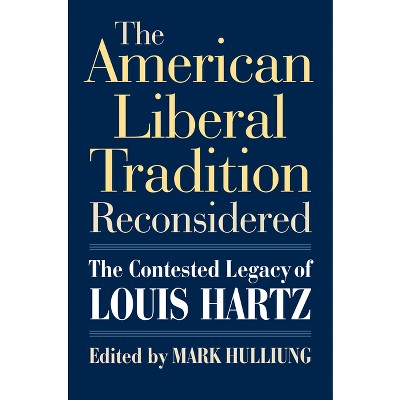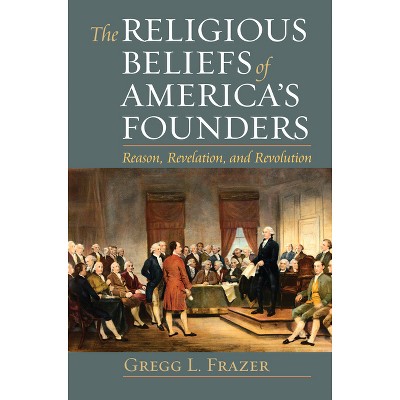John C. Calhoun's Theory of Republicanism - (American Political Thought) by John G Grove (Hardcover)

About this item
Highlights
- John C. Calhoun (1782-1850), the South Carolinian who served as a congressman, a senator, and the seventh vice president of the United States, is best known for his role in southern resistance to abolition and his doctrine of state nullification.
- Author(s): John G Grove
- 224 Pages
- Political Science, History & Theory
- Series Name: American Political Thought
Description
About the Book
Presents John C. Calhoun's theory of the concurrent majority as a rare example of an American political theory resting on classical assumptions about human nature and political life.
Book Synopsis
John C. Calhoun (1782-1850), the South Carolinian who served as a congressman, a senator, and the seventh vice president of the United States, is best known for his role in southern resistance to abolition and his doctrine of state nullification. But he was also an accomplished political thinker, articulating the theory of the "concurrent majority." This theory, John G. Grove contends, is a rare example of American political thought resting on classical assumptions about human nature and political life. By tracing Calhoun's ideas over the course of his political career, Grove unravels the relationship between the theory of the concurrent majority and civic harmony, constitutional reform, and American slavery. In doing so, Grove distinguishes Calhoun's political philosophy from his practical, political commitment to states' rights and slavery, and identifies his ideas as a genuinely classical form of republicanism that focuses on the political nature of mankind, public virtue, and civic harmony.
Man was a social creature, Calhoun argued, and the role of government was to maximize society's ability to thrive. The requirements of social harmony, not abstract individual rights, were therefore the foundation of political order. Hence the concurrent majority permitted the unique elements in any given society to pursue their interests as long as these did not damage the whole society; it forced rulers to act in the interest of the whole. John C. Calhoun's Theory of Republicanism offers a close analysis of the historical development of this idea from a basic, inherited republican ideology into a well-defined political theory. In the process, this book demonstrates that Calhoun's infamous defense of American slavery, while unwavering, was intellectually shallow and, in some ways, contradicted his highly developed political theory.
Review Quotes
"Grove brings fresh coherence to the political thought of one of the South's most vexing figures. Historians will appreciate this work on political theory for its creative and nuanced presentation of a complex figure who has often been either caricatured or deemed inaccessible."--Journal of Southern History
"This book is the best available survey of Calhoun's thought."--American Political Thought
"Grove presents a new interpretation of Calhoun, an interpretation more sympathetic to Calhoun than most of the recent literature and differing from most in placing Calhoun squarely in the tradition of classical republicanism. Grove's Calhoun is a "post-liberal" republican, for we see Calhoun here as a conscious critic of the liberal individualistic theory so common in 18th and 19th century America. And unlike most writing on Calhoun Grove is very concerned to show that Calhoun's theory of republicanism is not indissolubly wedded to his defense of slavery and thus of value and relevance to us today."--Michael P. Zuckert, coauthor of Leo Strauss and the Problem of Political Philosophy
"This provocative book seeks to locate Calhoun squarely in the tradition of classical republicanism. Students of ante bellum political thought will have much to learn from Grove's analysis."--Daniel Farber, author of Lincoln's Constitution
"John Grove argues persuasively that Calhoun's critique of corruption, political parties, and executive power was rooted in a classically republican conception of politics. He also maintains that Calhoun's commitment to slavery contradicted what was best in his republican vision. John C. Calhoun's Theory of Republicanism sheds fresh light on Calhoun's thought and invites renewed debate on his defense of slavery."--James H. Read, author of Majority Rule versus Consensus: The Political Thought of John C. Calhoun






